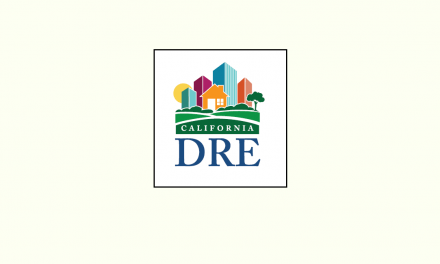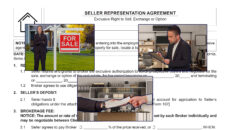This is the third episode in our new video series covering Risk Management principles. The prior episode covers the occupational hazard of a dispute with a client or other participant during the listing period, and terminating the agency to eliminate the broker’s exposure to future claims.
This episode digests agency disputes which arise between the agent and their client after a purchase agreement has been entered into, and principal disputes between the buyer and seller.
Escrow period disputes
After opening a sales escrow for the purchase of real estate, disputes under two types of conditions may arise. Either type of dispute may ultimately require the termination of the agency relationship.
One set of disputes is classified as agency disputes. Agency disputes arise between the agent and their client after the client has entered into a purchase agreement. If the dispute cannot be resolved and the representation continued, the agency is terminated in the same manner as the listing period disputes discussed in the previous section.
The other set of disputes is classified as principal disputes. Principal disputes develop between the buyer and seller and result in a refusal of one or the other to act further to close escrow. The refusal of one party to proceed with the transaction may be excused, justified or constitute a breach of the purchase agreement.
Negotiations to resolve the misunderstandings and close escrow may not be successful. If the escrow dispute becomes irresolvable, the agent needs to consider recommending the buyer and seller terminate the purchase agreement. At the same time the buyer and seller cancel the transaction, they need to release each other from any claims they may have against one another, by entering into a cancellation, release and waiver agreement. [See RPI Form 181]
The cancellation, release and waiver agreement entered into by the buyer and seller releases everyone involved in the transaction. Thus, any liability exposure the agents and client may have due to the transaction is eliminated.
Post-closing disputes
The expectations of a buyer in a purchase transaction are always high. Further, the condition of a property is almost never as rosy as it appeared before taking possession.
Thus, after closing a transaction, brokers and their agents are occasionally brought into annoying disputes by buyers. These buyers may be disgruntled over the condition of the property, its improvements, the neighborhood, hazards of the location, zoning, easements held by neighbors, fence locations, operating expenses, tenant problems, etc.
Buyers, believing they have gotten less than they bargained for, often attempt to shift responsibility for payment of expenses they have incurred to cure superficial obsolescence or deterioration. Worse yet, they may seek to recover a portion of the purchase price on a claim the property value received was measurably less than the price they paid.
However, the seller’s broker, while responsible for their services, is not the guarantor of an obligation the seller may owe the buyer for property deficiencies. As the gatekeeper to real estate ownership, it usually is the broker who is the first person put upon by a disgruntled buyer to “cure the problem.”
Brokers and agents often pay some of these claims to permanently remove themselves from a disputed purchase. On any settlement of a dispute on a closed transaction, the broker needs to demand a release and waiver settlement agreement. Once the buyer has “raided the cookie jar” for a few dollars, they may come back for more. The release and waiver provisions in a settlement agreement put an end to it. [See RPI Form 526]
The documentation
A mutual cancellation agreement, which does not include a release of claims and waiver of rights, merely serves to terminate any further activity under the existing agreement or agency relationship. Thus, all parties are excused from further performing since the agreement and relationship have been terminated.
In essence, the cancellation “does away with” the remainder of the purchase agreement that has not yet been performed. A cancellation, by itself, does not affect the responsibilities of the buyer, seller, brokers or agents, for their activities which preceded the cancellation.
Conversely, a release and waiver of rights, commonly called a rescission and restoration agreement, returns the parties to the respective positions they held before entering into the terminated agreement. [See RPI Form 526]
A release agreement, signed by all parties to a transaction as part of a cancellation agreement, retroactively extinguishes all known claims in disputes the parties have between themselves. Thus, the general release ends all liability between the parties for those claims actually known to the parties to exist in the dispute.
However, a general release does not affect unknown claims later uncovered. [Calif. Civil Code §1542]
Thus, under a general release a category of claims remain unresolved, i.e., those which might exist, come into existence or be later established and are unknown to the parties on entering into a general release. These claims are called unknown and unsuspected claims. To eliminate these unknown claims, a waiver of the right to later pursue these claims needs to be included with a general release and made part of the mutual cancellation agreement. [CC §1542]
A written, signed release agreement does not require new consideration to be paid for the cancellation, release and waiver to be enforceable as a bar to further claims. [CC §1541]














